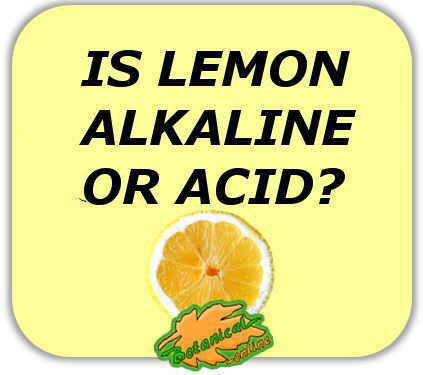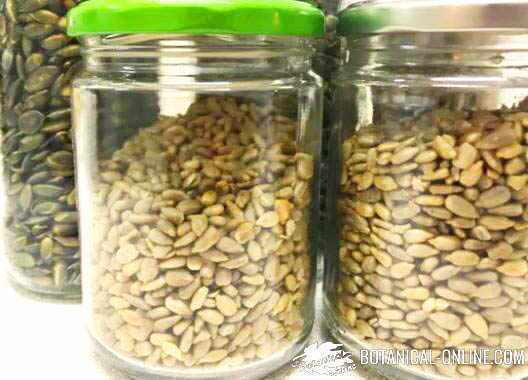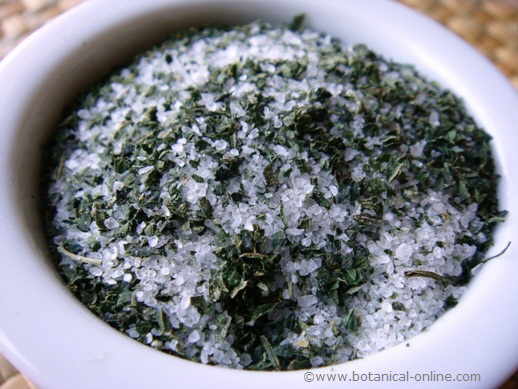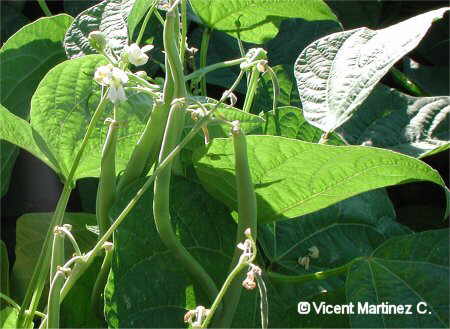Contents
- 1 Why is lemon alkalizing
- 1.1 ALKALINIZING EFFECTS OF LEMON
- 1.2 Is lemon alkalizing or acidifying?
- 1.3 Is lemon acid or alkaline?
- 1.4 Is lemon acid for the stomach?
- 1.5 Regulation of acidity in the stomach
- 1.6 What properties does the lemon and its citric acid have?
- 1.7 Lemon as alkalizing food
- 1.8 So, is lemon acid or alkaline?
- 1.9 Scientific studies on lemon as an alkalizing food
Why is lemon alkalizing
ALKALINIZING EFFECTS OF LEMON
Is lemon alkalizing or acidifying?
Consultation of a reader:
Good Morning,
My question is this: I want to know if it is true that in the process of digestion of lemon this stops being a citric and happens to be alkaline in the stomach, and if it lowers acid levels of the stomach, or if on the contrary it is ontraindicated.
I would greatly appreciate the information and if there are studies that support this.
Is lemon acid or alkaline?

Frequent doubts about whether lemon is alkaline or has acidic properties
Photo of vegetarian lentils
Although lemon contains acidic citric acid, it is not an acidifying food. Due to its content in potassium, calcium and little contribution of proteins, phosphorus and other acidifying components, lemon is an alkalizing food.
People with gastritis and ulcers can consume it, in the recommended amounts, and preferably with meals.
Is lemon acid for the stomach?
Lemon contains an organic acid called citric acid. In chemistry, citric acid is called a “strong acid,” meaning that when it is ingested, it lowers the stomach pH. However, it contains little of that acid, so, in normal dietary amounts, lemon does not cause irritation in the stomach. In fact, if the lemon is consumed with meals, they do not have any harmful effect, since the foods compensate the slightly acidic pH that could bring the lemon.
What would be irritating to the stomach would consume a lot of lemon, undiluted in water, and on an empty stomach.
Regulation of acidity in the stomach
On the other hand, the stomach has its own mechanisms to regulate acidity. That is, when acid foods are ingested, what is produced in the stomach is a compensation, through the regulation of acid secretion. That is, the stomach walls pick up the pH change by ingestion of acidic foods, and what they do is produce less hydrochloric acid. In this way the ingestion of acids is compensated, and the stomach regulates excess acidity.
Therefore, under normal conditions, the stomach never has “too much acid”, except for the ingestion of chemicals or excessive acidic foods (as discussed above on excessive amounts of undiluted lemon).
In short, lemon is not bad for the stomach even if it is acidic, and can be eaten in case of gastritis and ulcer. In these latter cases, it is advisable to eat it during meals and diluted in water.
* More information: Lemon for the stomach
What properties does the lemon and its citric acid have?
As a curiosity, citric acid is digestive and helps the stomach in its functions of digestion of food.
An easy experiment to illustrate this property is the maceration of a protein food, such as fish, in squeezed lemon: Is it true that food changes color and softens? This is due to the properties of citric acid to help degrade proteins. And this property is excellent in recipes like ceviche.
This should not be interpreted as citric acid being corrosive. As it has been explained, in the normal amounts found in foods, the stomach can tolerate the ingestion of lemon.
Lemon as alkalizing food

Photo of lemon
About whether the lemon is alkaline, that is another issue other than the acidity or presence of citric acid in the fruit.
The alkalinity of a food, in scientific or dietary terms (what is known as the popular alkaline diet) depends on the amount of protein, phosphorus, potassium, calcium and magnesium in food. Technically this is called the PRAL value. (Potential Renal Acid Load)
Depending on the composition of the food, these give an acid or alkaline urine. And, in turn, a more or less alkaline urine favors the elimination of certain toxins from the body.
Lemon, fruits and vegetables, contain a lot of magnesium and calcium, and few proteins, phosphorus and acidifiers. So, they are alkalizing. That is, they produce alkaline urine.
So, is lemon acid or alkaline?
As a conclusion of everything explained, it could be said that, although lemon contains citric acid, it is not acidifying. Due to its content in potassium, calcium and little contribution of proteins, phosphorus and other acidifiers, lemon is an alkalizing food.
- People with gastritis and ulcers can consume it, in the recommended amounts, and preferably with meals.
Scientific studies on lemon as an alkalizing food
As scientific references, there is a meta-analysis (maximum scientific evidence) about lemon in gastric cancer that indicates that citrus consumption is beneficial for the prevention of stomach cancer. Diets rich in fruits and vegetables, in general, would also be beneficial.
We hope to have resolved your doubts. Remember that you can contact us by email or through our Facebook.
*More information:
![]() More information on lemon
More information on lemon








